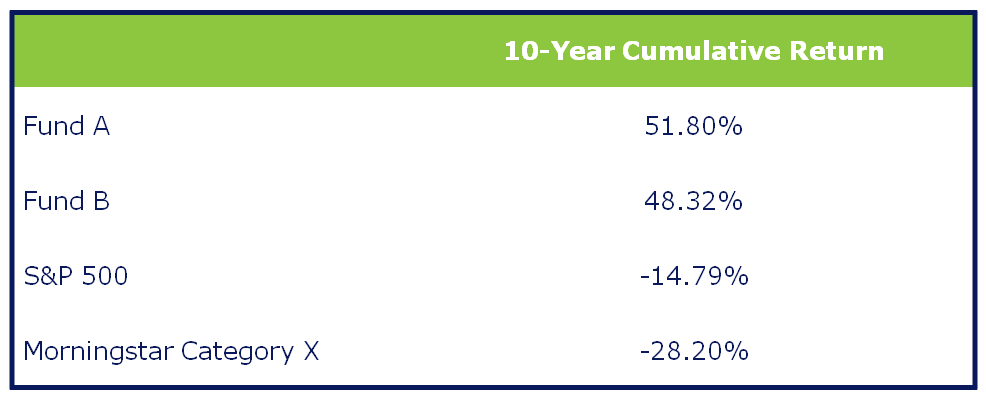Does Focusing on Performance Ever Help Fund Marketers?
I recently listened to a webcast with the head of a prominent mid-size fund family. At one point during the discussion, a slide appeared with performance data on two of the firm’s funds. A generic version appears below:
First off, the data presented looks great. The 10-year performance of both funds is fantastic. The problem lies in what happens after the table is digested. Smart investors/advisors/instittutions start to ask questions like:
- How did the funds do during other intervals (1 yr, 3 yr, etc.)?
- How has the fund performed since inception?
- How has the fund performed against its peers?
In this case, the firm’s Web site answers some, but not all, of these questions. Of course representation of performance is tightly regulated, but many firms still have room to grow when it comes to balancing:
- The message that puts the fund in the best possible light (e.g., the 10-yr data above)
- Complete, customizable performance data for all timeframes
- Full transparency against benchmarks and competitive products
This makes me wonder: is leading with fund performance, even when it’s strong, ever a good thing? Or does it instead result in a slew of questions intended to shoot holes in the data that’s presented?
I don’t think the answer is an absolute yes or no, but it’s increasingly common to look for a catch in marketing material that highlights performance, especially when the source has a vested interest in making a product look good. And while I’m not saying performance should be ignored, marketers do need to consider using performance only as a supporting character in a product’s story.






